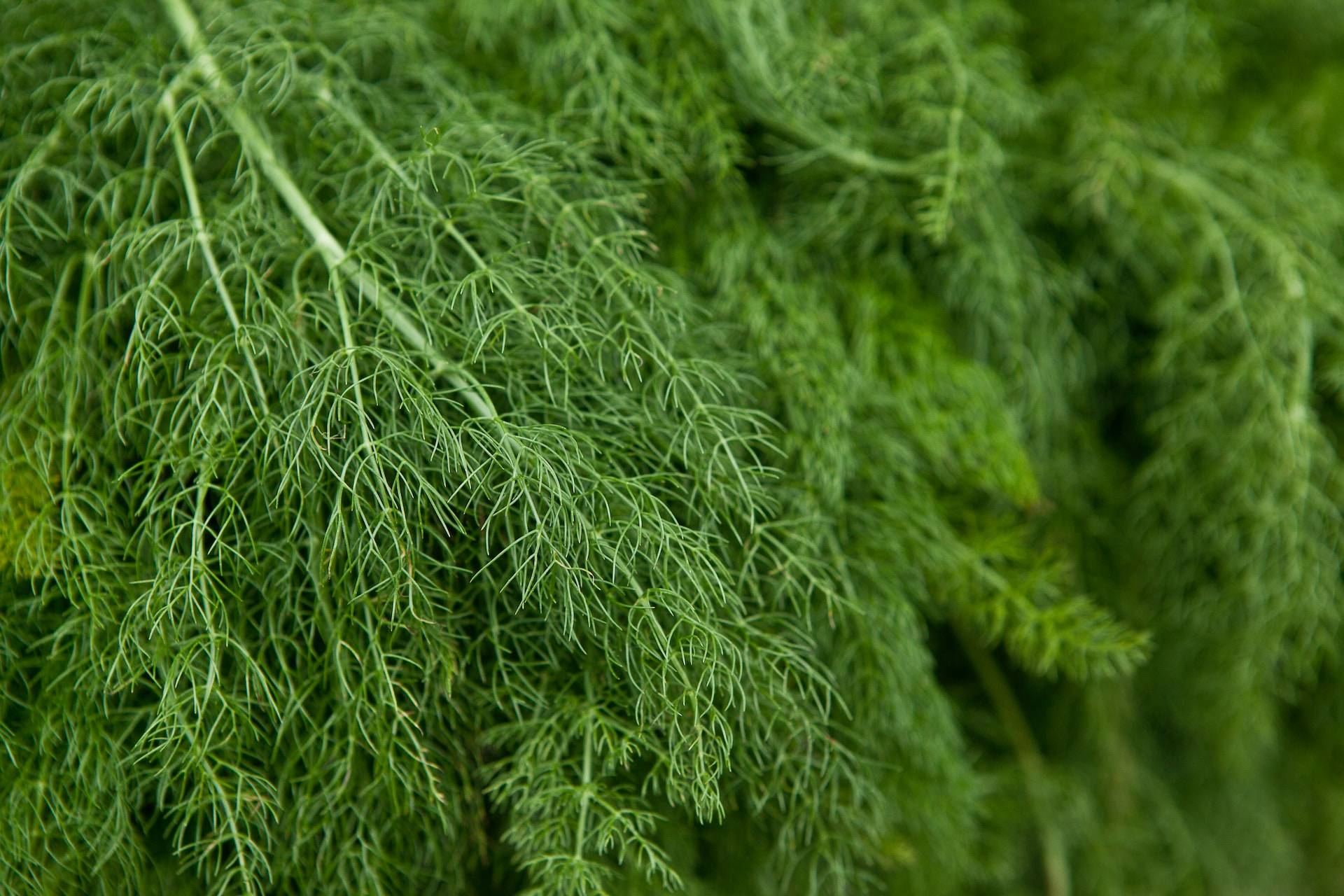
Dill is a versatile and flavorful herb that has been used for centuries in culinary traditions across the globe. Known for its distinct aroma and tangy taste, dill adds a burst of freshness to a variety of dishes. From pickles to fish to soups, this herb has found its way into the hearts and taste buds of food enthusiasts worldwide.
In this article, we will explore 17 fascinating facts about dill that will leave you with a newfound appreciation for this humble herb. Whether you’re a seasoned chef or a home cook looking to add some excitement to your meals, these facts will give you a deeper understanding of dill’s origins, health benefits, and culinary uses.
Key Takeaways:
- Dill is not just a flavorful herb, but also a natural remedy with digestive, anti-inflammatory, and bone health benefits. It’s easy to grow and can even repel insects!
- Whether you’re cooking or gardening, dill is a versatile herb with a rich history and a range of uses. From soothing colic in babies to repelling pests, dill has a lot to offer.
Ancient Origins
Did you know that dill has been used for thousands of years? It has a rich history that dates back to ancient civilizations like Egypt and Rome. The Egyptians even believed that dill had mystical powers.
Herb and Spice
Dill is versatile and can be used as both an herb and a spice. Its fresh leaves are often used in salads, soups, and sauces, while its dried seeds are commonly used in pickling and baking.
Distinctive Flavor
The flavor of dill is fresh, tangy, and slightly sweet. It has a unique taste that pairs well with fish, vegetables, and dairy products. This is why it is a popular ingredient in many Mediterranean and Scandinavian dishes.
Rich in Nutrients
Dill is not just flavorful; it is also packed with essential nutrients. It is a good source of vitamins A and C, as well as minerals like manganese, iron, and calcium.
Digestive Aid
Dill has long been known for its digestive properties. It can help alleviate indigestion, bloating, and even stomach cramps. Drinking dill tea after a meal can aid in digestion.
Breath Freshener
The aromatic compounds in dill can freshen your breath naturally. Chewing on a few dill seeds or leaves can help combat bad breath.
Culinary Uses
Dill is a versatile herb that adds a vibrant flavor to a wide range of dishes. It is commonly used in pickles, salads, dips, dressings, and marinades. It can also be sprinkled over roasted vegetables for an extra burst of flavor.
Dill Water for Babies
Dill water, made by infusing dill seeds in water, has been traditionally used to ease colic and digestive discomfort in babies. It is believed to have a calming effect and helps alleviate gas and bloating.
Medicinal Properties
In addition to its culinary uses, dill also has medicinal properties. It has been used as a herbal remedy for various ailments including insomnia, menstrual cramps, and respiratory issues.
Anti-inflammatory Effects
The compounds found in dill have anti-inflammatory properties, which can help reduce inflammation in the body. This makes it beneficial for conditions such as arthritis and inflammatory bowel disease.
Natural Diuretic
Dill acts as a natural diuretic, promoting the production of urine and the removal of toxins from the body. This can help maintain kidney health and prevent urinary tract infections.
Supports Bone Health
Thanks to its calcium and vitamin C content, dill can contribute to healthy bones and teeth. It also aids in the absorption of essential minerals like calcium and iron.
Insect Repellent
Dill has natural insect-repelling properties. Placing fresh dill leaves or dill oil around your home or garden can help keep pests like mosquitoes and flies away.
Dill in Folklore
Dill has its place in folklore and superstitions. In medieval Europe, it was believed that hanging dill over doorways would protect against evil spirits and bring good luck.
Companion Plant
Dill is a beneficial companion plant for certain vegetables like cabbage and lettuce. Its strong odor can help repel pests and attract beneficial insects to the garden.
Decorative Herb
Not only is dill a useful herb in the kitchen, but it also adds a decorative touch to gardens. Its delicate fern-like leaves and yellow flowers can enhance the aesthetics of any garden bed or pot.
Easy to Grow
Dill is a low-maintenance herb that is easy to grow in both gardens and pots. It thrives in well-drained soil and requires full sun to flourish. Planting dill seeds in the spring or early summer will yield a bountiful harvest.
These 17 facts about dill showcase the many facets of this versatile herb. Whether you use it in your culinary creations or appreciate its medicinal properties, dill is truly a remarkable plant.
Conclusion
In conclusion, dill is a versatile and flavorful herb that has been used in culinary and medicinal applications for centuries. Its distinct taste and aroma make it a popular ingredient in various dishes, and its health benefits are undeniable. Whether you’re adding it to pickles, soups, or salads, dill is sure to enhance the flavor and provide a refreshing twist. So, next time you’re cooking, don’t forget to include this amazing herb in your recipes.
FAQs
Q: How should I store fresh dill?
A: To keep fresh dill longer, store it like fresh flowers. Trim the stems and place the bunch in a glass of water. Cover it loosely with a plastic bag and store it in the refrigerator. Change the water every few days to maintain freshness.
Q: Can I use dried dill instead of fresh?
A: Yes, you can substitute dried dill for fresh in most recipes. However, keep in mind that the flavor of dried dill is more concentrated, so you will need to adjust the amount accordingly. Generally, one teaspoon of dried dill is equivalent to one tablespoon of fresh dill.
Q: Is dill beneficial for health?
A: Yes, dill has several health benefits. It contains various antioxidants and compounds that may promote digestion, reduce inflammation, and provide antimicrobial properties. It is also rich in vitamins and minerals, making it a nutritious addition to your diet.
Q: Can dill help with digestion?
A: Yes, dill is known to have carminative properties, which means it can help soothe the digestive system and relieve gas and bloating. It can also stimulate appetite and aid in digestion.
Q: Are there any precautions to consider when consuming dill?
A: While dill is generally safe to consume, it may cause allergic reactions in some individuals. Pregnant women should also avoid consuming large amounts of dill, as it may have a stimulating effect on the uterus. As with any herb or food, it’s always a good idea to consult with a healthcare professional if you have any concerns or specific health conditions.
Dill's versatility extends beyond culinary delights. Curious about dill pickle nutrition facts? Wondering how dill relish stacks up nutritionally? Intrigued by more captivating dill facts? Continue exploring our site to satisfy your curiosity and expand your knowledge of this remarkable herb.
Was this page helpful?
Our commitment to delivering trustworthy and engaging content is at the heart of what we do. Each fact on our site is contributed by real users like you, bringing a wealth of diverse insights and information. To ensure the highest standards of accuracy and reliability, our dedicated editors meticulously review each submission. This process guarantees that the facts we share are not only fascinating but also credible. Trust in our commitment to quality and authenticity as you explore and learn with us.


